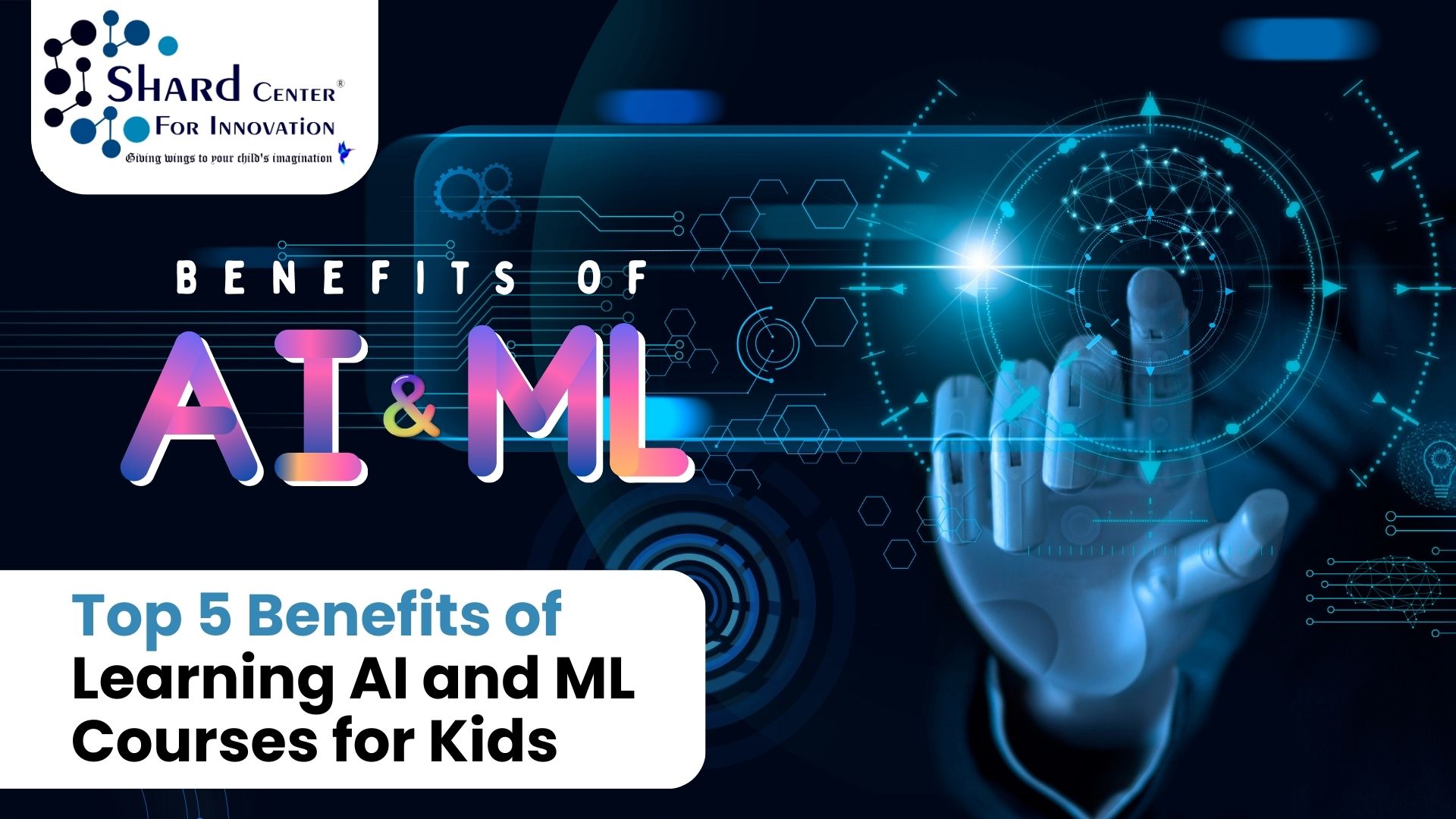Imagine your child creating a game in which a computer taught itself to play, or a program that could tell the difference between a picture of a cat and a picture of a dog. Sounds futuristic? Not anymore. Artificial Intelligence (AI) and Machine Learning (ML) have become integral to our everyday lives.
The World Economic Forum says that an estimated 97 million jobs will be created that are related to AI and automation by the year 2025. This shows how important it is that the future generation learns to do more than use technology, but also knows how to formulate it and create something amazing.
Here are the top five advantages of AI and ML courses for kids. By the end, you will understand why these are not just valuable skills to learn at an early age, but they are becoming a requirement.
1. Encourages Creative Problem-Solving
The essence of AI and ML is to solve problems more smartly. Children do not study AI by memorising code or measures. They focus on issues such as: How can shapes that have been drawn by hand be recognised by a computer?
This kind of thinking encourages children to make trial and error, learn through mistakes, and persevere until they are right. Creativity increases when kids study the issues in different aspects and come up with unique solutions.
Example: Training a computer to detect emotion in photos may be seen as a complex process, but through harmless assignments, kids learn about data and how to enhance the results, one step further.
Such small experiments form a problem-solving mentality that has value to any field in life, whether in schoolwork, hobbies, or later employment.
2. Builds Ethical Awareness and Social Responsibility
Ethics is one of the least talked about but most significant benefits of AI education. The good thing about it is that it is very powerful, yet very prone to errors in case of hasty design.
Consider a system that cannot identify darker skin tones in addition to the lighter ones, which is not only a technical problem, but an ethical problem as well.
It also involves teaching the kids AI at a young age and responsibility. They are taught the importance of fairness in data, they understand the need to respect privacy, and they understand how technology can be utilised. Along with practising this ability, young kids not only become effective problem-solvers but also develop into forgiving individuals who consider the social consequences of their actions.
When parents know that their child is not merely taught how to create technological solutions but how to utilize technology responsibly, they will be able to rest assured that they have secured a future in the market.
3. Boosts Confidence Through Hands-On Projects
Courses in AI and ML are made practical through activities. Children make actual projects that they can take pride in, as compared to simply reading up on theories. As soon as they teach a model to identify various animals, create a voice assistant, or make a game more intelligent with the help of AI, they see the results of it.
This approach boosts confidence. Kids feel confident whenever they accomplish any task on their own. And when they fail, they will know the practice of resilience--that failure is just part of the learning process.
Such confidence carries beyond the classroom. Children who understand that they are capable of accomplishing as complicated a task as the development of an AI system start to realize that anything is possible in their lives. That belief is powerful; it turns learners into leaders.
4. Prepares Children for Future Careers and Opportunities
AI Classes is not simply another subject- it is the basis of the workforce of the future. AI is revolutionizing all areas, including healthcare and agriculture, education, and entertainment. Children will not only be amassing knowledge but also preparing themselves to have careers in the workforce that as yet do not exist.
Children growing up with an awareness of AI and ML will be in a better position to influence those industries instead of adapting to them.
They may not pursue careers in technology, but knowledge of data literacy, problem-solving, and adaptability are skills that they can transfer into any workplace, giving them a huge advantage. Parents currently signing up their children are giving them a gift that is future-proof.
5. Early Exposure Builds Life Long Advantage
Another strong reason to introduce kids to is the long term edge it provides.
Just like learning a new language or a musical instrument is easier at a young age, the same applies to complex concepts like coding, algorithms, and machine learning. Children who start early not only grasp these ideas faster but also retain and build on them more effectively as they grow.
This early exposure gives them a lifelong advantage, whether they pursue careers in science, business, medicine or arts, because AI is becoming a universal tool across industries.
Conclusion
AI and ML courses offered to kids are not only about coding. They encourage creativity, enhance logical reasoning, impart a sense of ethical accountability, build confidence levels, and give the children a shot at the future.
In a world where everyone is becoming dependent on technology, beginning learning it early will ensure that they will not be mere consumers of AI but will be its creators.
The future lies in the hands of people who can learn, adapt, and innovate, and with the help of AI and ML, children find the optimal level of preparation to do so.
Related Blogs:
- What is Data Science? How to Become a Data Scientist in India?
- How to Land the Top 5 Robotics Job Roles in India (2025)
- From Ideas to Impact: How Design Thinking Sparks Student Problem-Solving
- How STEM Education Prepares Students for AI and Robotics Careers
- Integrating STEM in School Curriculum: Benefits and Challenges
- How to Set up a STEM Lab at your School in 2025?
